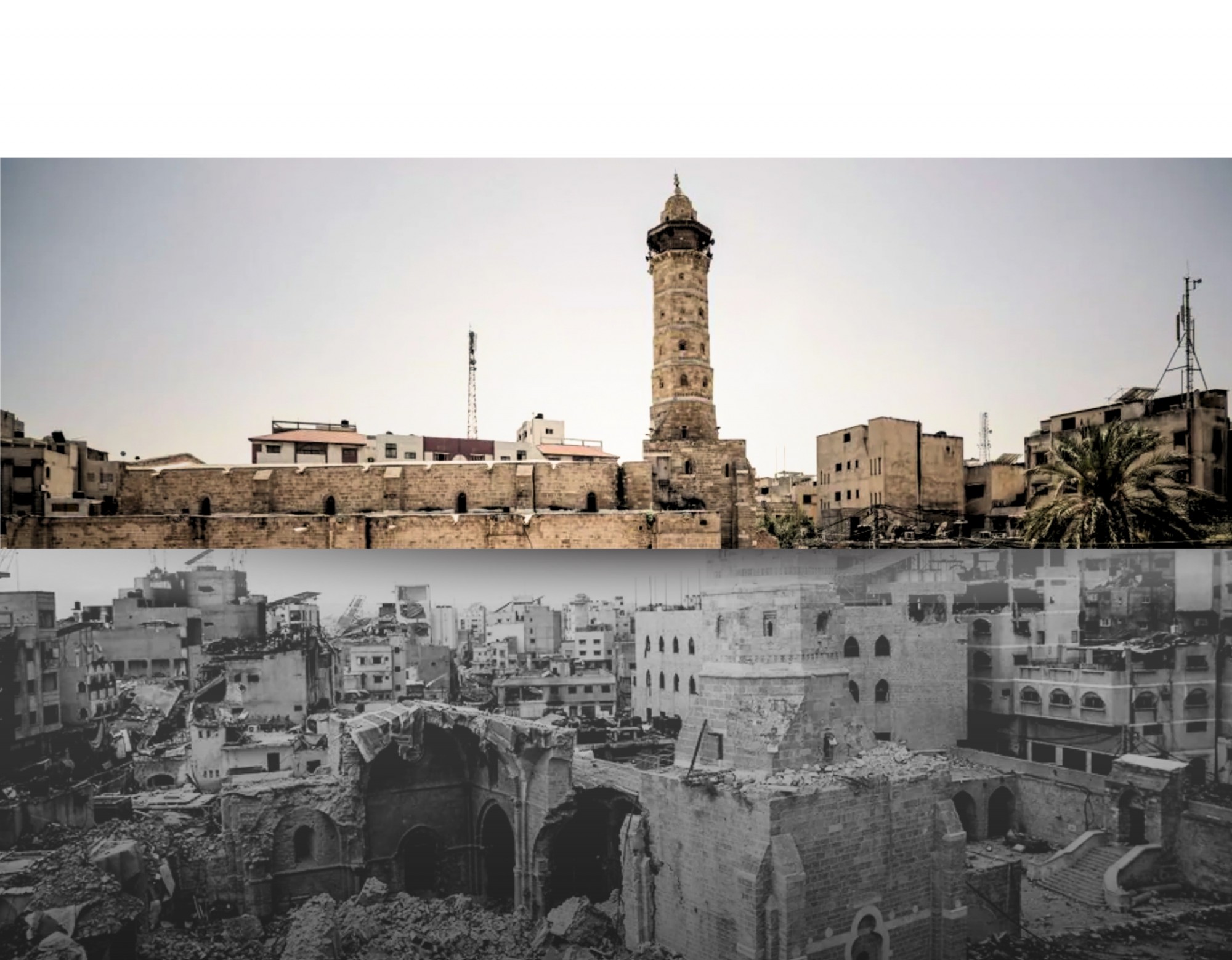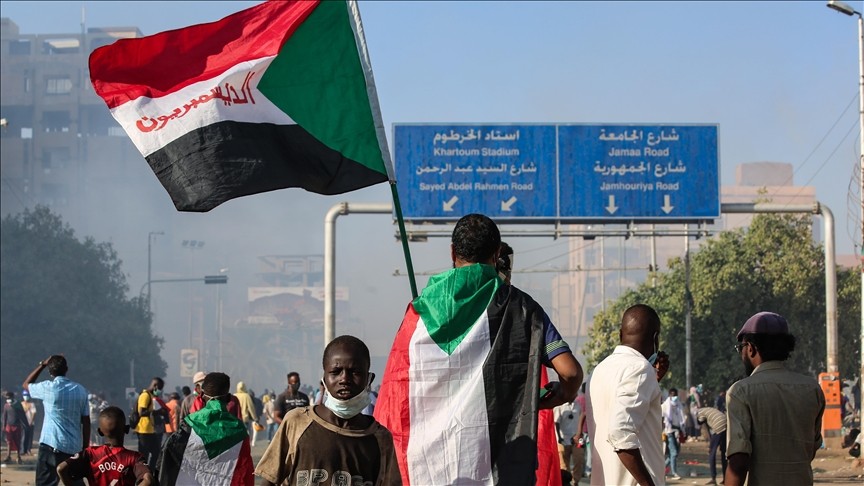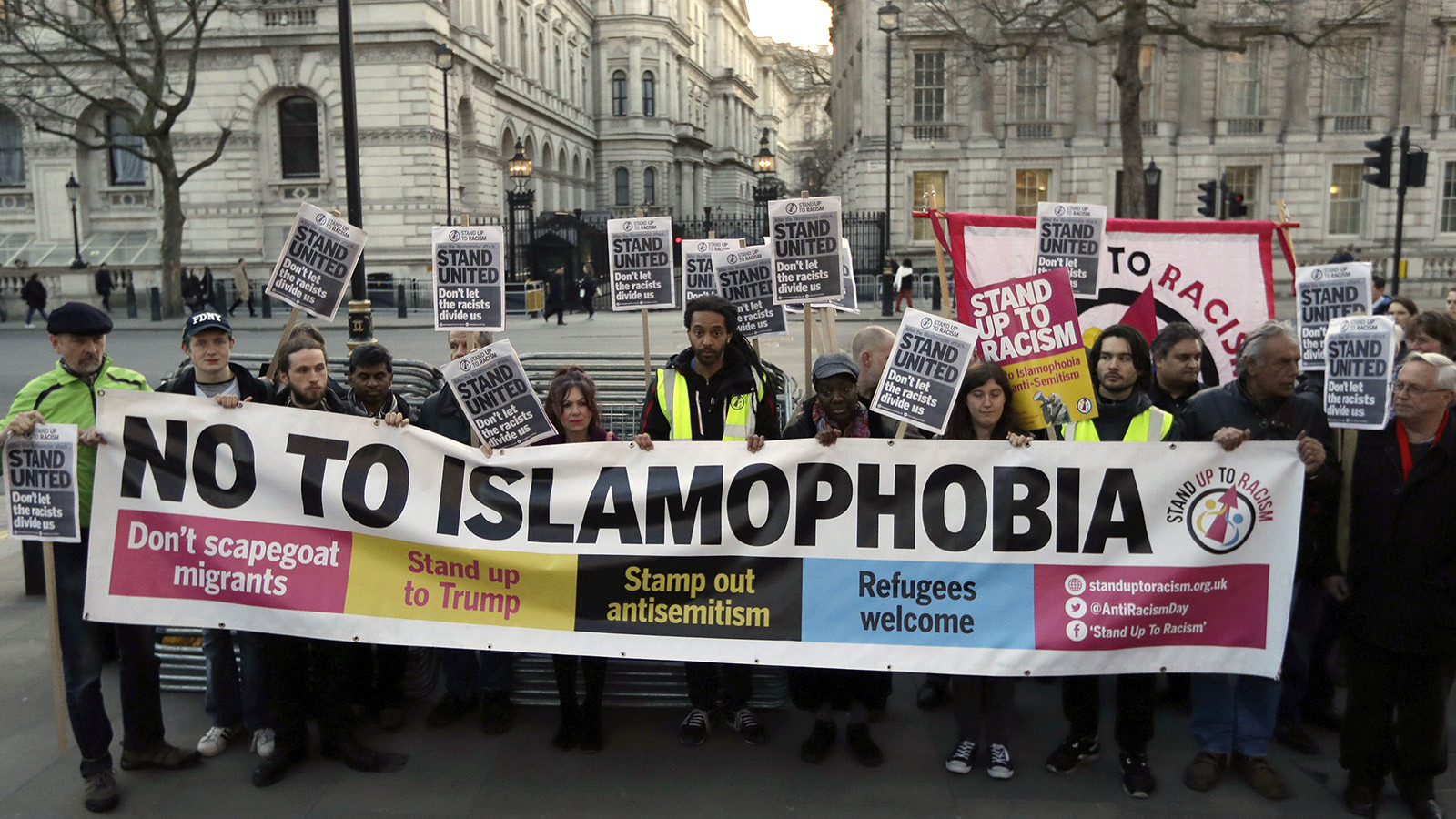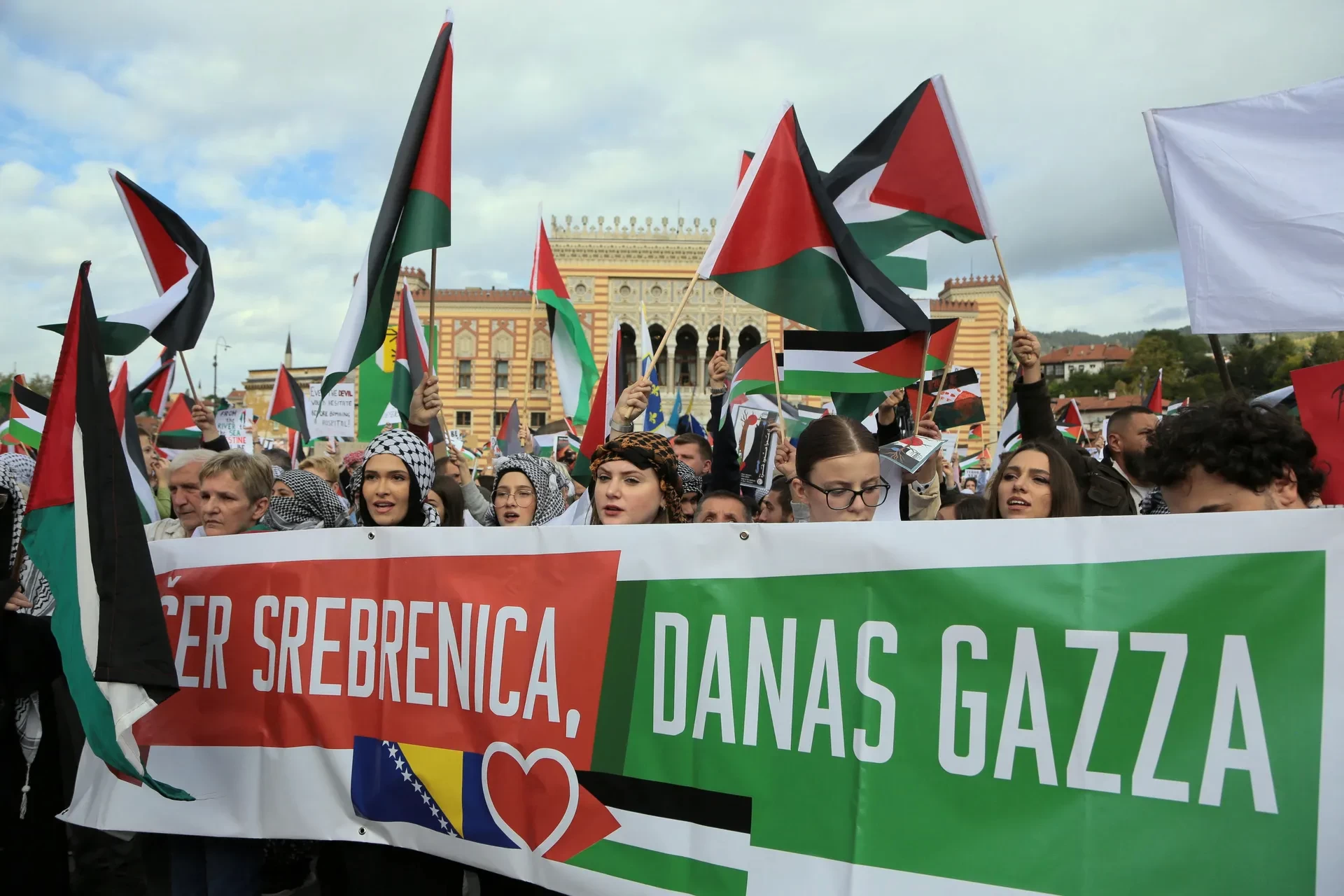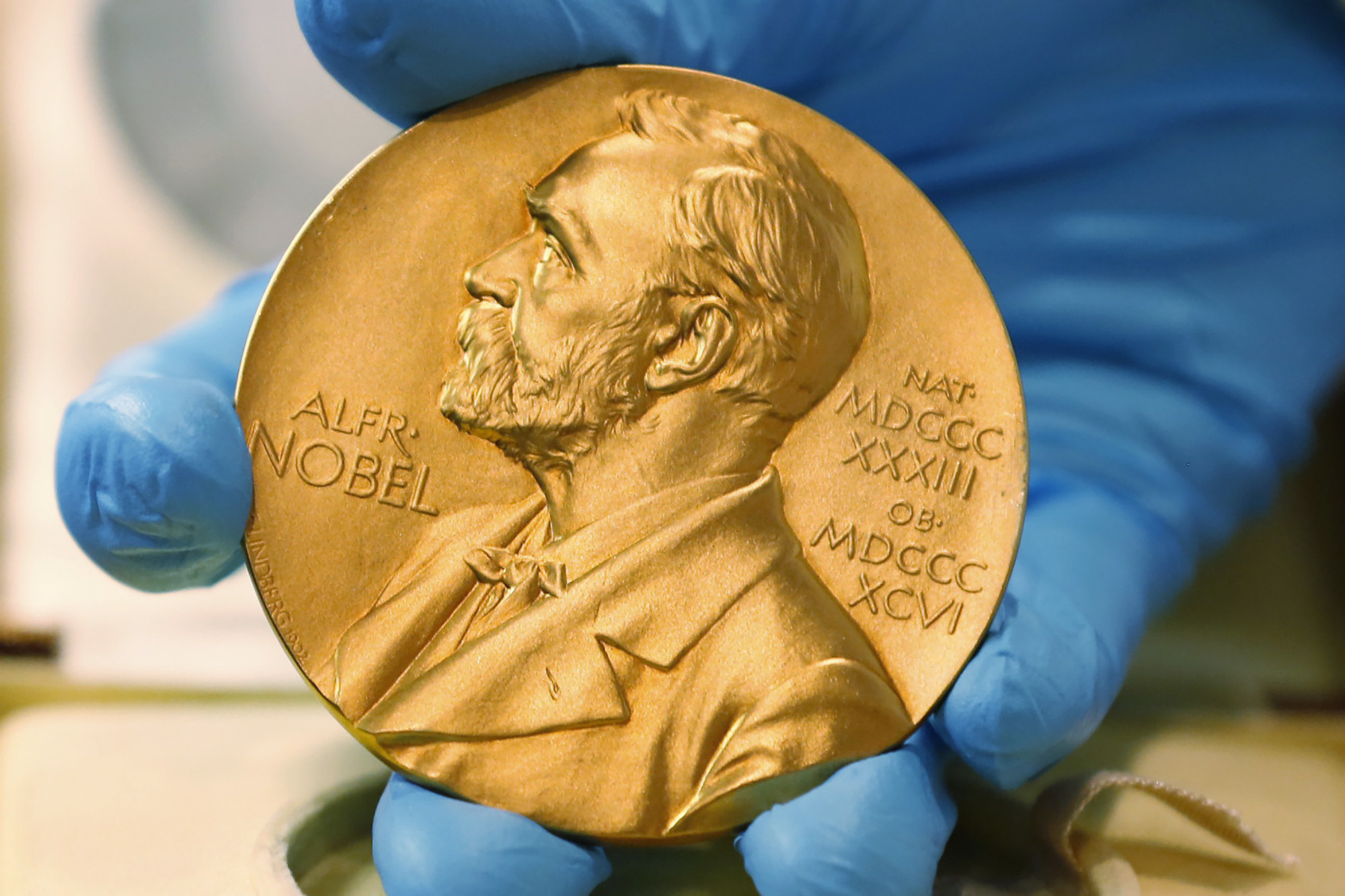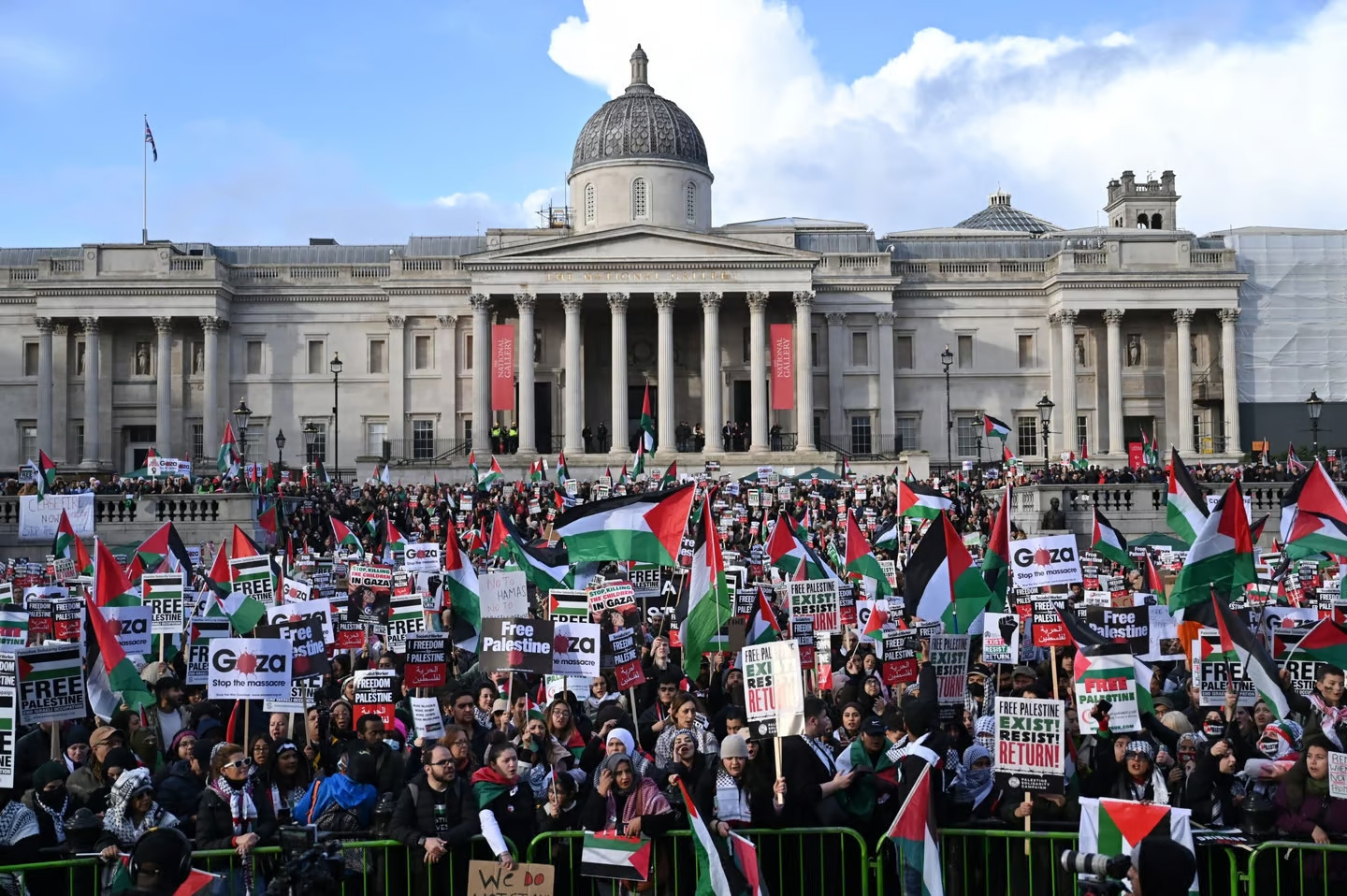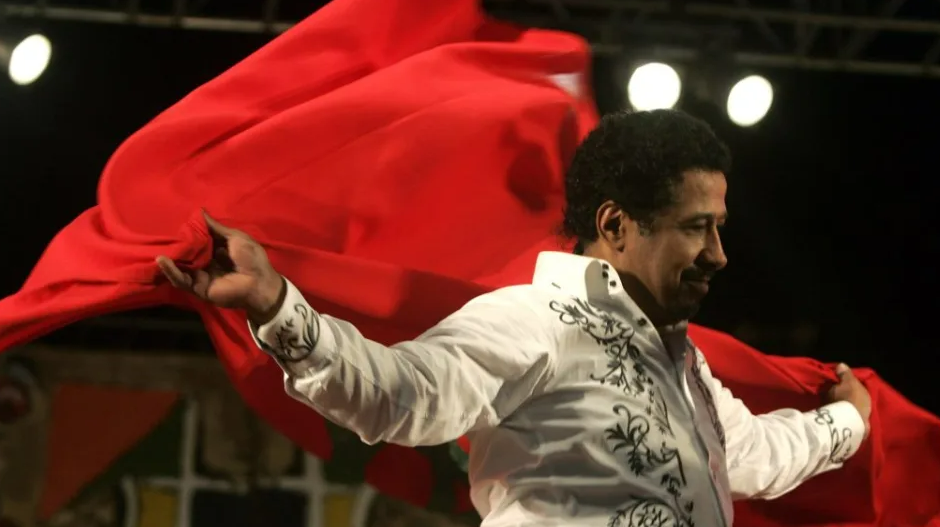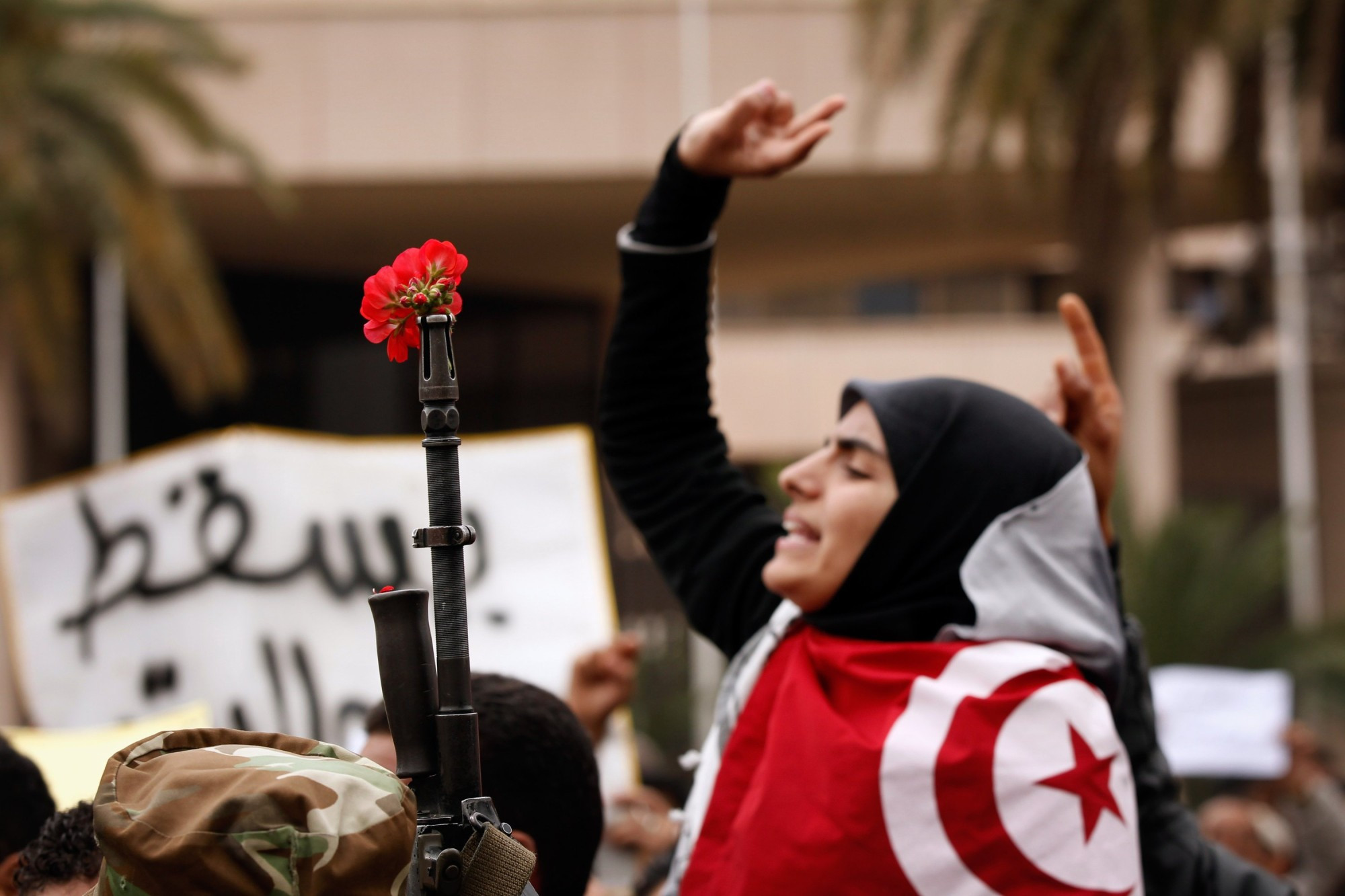
The Changing Agenda of Islamist Movements After the Arab Spring
Since the departure of the Prophet (pbuh) from this world, the political structure of Muslim societies has passed through certain stages in this period of about 14 centuries. In this experience, Islam played a central role. The central and regulative role of Islam in the political experience in the Muslim world continued until the modern period, when ties with the tradition were broken as a result of the Renaissance, Reformation, Enlightenment and a series of revolutions that emerged in Europe. With the modern era, the acceptance of reason as the main and only source of knowledge, the autonomy of the political sphere (from religion), the abandonment of the ideal of good life, and the replacement of the transcendent with the immanent (Kayapınar, 2014, p. 3) have deeply affected the 14-century political experience of Muslims. Especially in the rise of Europe against the Islamic world, the bond established between progress and secularization and the autonomy of politics opened up the central position of religion for Muslims to debate.
Autonomization of politics, as experienced in Europe, refers to separation from both the religious and the private as a result of modernity and progress (Roy, 2020, p. 24). Separating the public and private spheres and making religion only a matter of conscience (Aydın, 2002: 109); presenting this to Muslim societies as a recipe for salvation and progress has had a divisive effect on the Muslim world. Some of them wanted to transfer the European experience to the Muslim world for salvation and progress and tended to eliminate the central and regulatory role of Islam in the public sphere. The other part, on the other hand, wanted to make Islam dominate the society and the state again, and started renewal and reform activities.
However, with the Tanzimat (1839), Constitutional Monarchy (1908) and finally with the abolition of the caliphate in 1924, religion was isolated from the public sphere. The reform and renewal activities initiated were destroyed when they were at the full maturity stage (Gannuşi, 2017, p. 56). This situation pushed the Muslims, who were excluded from the public sphere with their religion and pushed to the periphery, to organized activities in order to gain their central position and to make Islam dominate life again. Thus, Islam has become a contemporary political ideology by being instrumentalized by groups and organizations working towards political goals (Chamkhi, 2014, p. 454).
Islamist Movements
The renewal and reform activities of names such as Jamaluddin Afghani and Muhammad Abduh, which started in the 19th century, turned into organized structures in the 20th century and Islamist movements emerged. In this context, the first organized political structure formed within the scope of Islamic order-centered purpose and discourse within Muslim societies was the Muslim Brotherhood Organization, founded by Hasan al-Banna in Egypt in 1928 (Mercan, 2020, p, 111). With the establishment of the Muslim Brotherhood, the Islamist elite reform discourse of Afghani and Abduh was replaced by a mass movement in the national and international context (Al-Anani, 2012, p. 466).
The influence of the Muslim Brotherhood (Kılavuz et al., 2014, p. 30), which is today accepted as the pioneer of modern Islamist movements, has been so wide in the Islamic world that Yusuf al- Qaradawi defined contemporary Islam as "Ikhwan Islam" (Gannuşi, 2012, p. 406). Almost all of the Sunni political movements were inspired by the Ikhwan. Many organizations such as the Welfare Party in Türkiye, the Hamas Movement in Palestine, the Reform Movement in Yemen, the Ennahda Movement in Tunisia, and the Jamaat-i Islami in Pakistan are among the first examples that come to mind (Kılınç, 2019, p. 77).
In the 1960s, under the influence of the polarizing conjuncture of the Cold War, the Islamist discourse was practically radicalized by the influence of the thoughts of Sayyid Qutb, who rejected all kinds of Western ideologies (Erkilet, 2000, p. 398), and theoretically, developed an uncompromising rhetoric (Canatan, 2019, p. 96). In this period, the tendency to confirm and defend the Islamic teachings in Afghani and Abduh turned into a political struggle and challenge in Qutb (Al-Gannuşî, 1987, p. 266). Thus, the idea of rescuing the state, which dominated the Islamist discourse in the 19th century, was replaced by the idea of establishing a state in the 20th century.
The Islamist discourse experienced another major transformation with the 1979 Iranian Islamic Revolution. The Islamists, deprived of a political focus since the abolition of the caliphate, found the opportunity to express themselves in the political order for the first time after 1924. Despite the opposition of all the superpowers and their supporters, this situation gave Muslims self-confidence. The revolution was regarded as a victory against unbelief with the help of the power that was believed to exist in the nature of Islam (Moten, 1996, p. 133). Thus, after the revolution, Islamists began to participate in political activities intensively at the level of their own states (Roy, 2020, p. 158).
With the 1980s, the Muslim Brotherhood participated in the elections in Egypt and were able to elect several deputies. In Jordan and Kuwait, the Muslim Brotherhood could be found in circles close to the government. The Islamist origins of the team of technocrats surrounding Turgut Özal in Türkiye, the participation of the Islamic Salvation Front (FIS) in the 1990 and 1991 elections in Algeria, the efforts of the Islamic Tendency Movement (later called Ennahda) in Tunisia to integrate into the legal political system despite the fierce opposition of the government circles have also been evaluated in the context of this transformation (Roy, 2020, p. 103).
In this period, when Islamists intensely participated in political activities, the Islamist discourse began to give frequent references to the norms of democracy and human rights in the universal sense (Mercan, 2020, p. 129). This situation is interpreted as an effect of the end of the era of hard ideologies with the end of the Cold War. In Islamist discourse, sociability, intellectual-moral reform and the aim of civil society came to the fore (Canatan, 2019, p. 99). During this period, Islamists reviewed their strategies, discourses and political models. They had gained a new understanding that tries to Islamize the society from the bottom up, replacing revolutionary-radical Islamism and emphasizing civil society instead of the state (Canatan, 2019, p. 100).
The emergence of these new Islamists, who diverged from political Islamism, which was also affected by the confrontational atmosphere of the Cold War period, was interpreted by Olivier Roy as the bankruptcy of political Islam. Asef Bayat, on the other hand, discussed this transformation in the context of the concept of post-Islamism. According to Bayat, this camp has turned to religion and rights with the new era, instead of the religion and responsibilities that dominated the classical period of Islamism (Bayat, 2007, p. 19).
İsmail Yaylacı, on the other hand, interpreted the current developments as Islamism's adoption of an understanding that proceeds not with exile and negation, but with negotiation. In more general terms, an understanding of Islamism, which takes dominant concepts and institutions but tries to appropriate it by infusing its own subjectivity into these concepts, has begun to develop (Yaylacı, 2020, p. 153).
However, although the Islamist movements, which had undergone great transformations between 1975-1990, struggled for the visibility of religion in the social arena and wanted to be included in the political processes (Güder, 2018, p. 386), the 1990s were the years when Islamist movements were harshly stopped and subjected to oppression and persecution. The suppression of FIS in Algeria, Ennahda in Tunisia, and the taking away of the chance of winning the government from the Muslim Brotherhood in Jordan took place in this period (Roy, 2020, p. 103). After the Arab Spring in 2011, Islamist movements were subjected to repression and went underground until they had the opportunity to participate in political processes again.
The Changing Agenda of Islamist Movements After the Arab Spring
The last stage that affected the transforming Islamist discourse since the abolition of the caliphate was the Arab Spring, which started in Tunisia in 2011 and spread to the whole region (Al-Anani, 2012, p. 466). The process, that started with a Tunisian youth, Muhammad al-Buazizi, who set himself on fire in front of the governor's office in the city of Sidi-Buzeyd, has shown that the regimes that dominate the region have deviated from the moral and humanitarian line, to the point where dishonorable living and structural problems have appeared before people (Eş-Şankıti, 2018, p. 409). Thus, the legitimacy crises that have accumulated in the region for centuries and the structural problems that have not been resolved but have been covered by heavy pressure have come to light with the Arab Spring (Kor, 2019, p. 7).
According to Munsif Merzuki, the Arab Spring started with the calls of the people and the youth for freedom, justice, bread and honor, and had an ideology-free nature without a central leadership (Merzûkî, 2019, p. 73). Asef Bayat, on the other hand, drew attention to the post-national, post-ideological, civilized and democratic character of the popular movements in this period, which is still in progress and has not been completed (Bayat, 2011). As a matter of fact, the people who took to the streets in Tunisia, Egypt, Libya, Yemen and elsewhere do not defend the Islamic state but at the same time do not protest religion and call for freedom and justice (Al-Anani, 2012, p. 467) confirms the ideas of Bayat and Merzuki.
This nature of the Arab Spring had a transformative effect on Islamist movements. First of all, with the Arab Spring, the heavy pressure on Islamist movements that started in the 1990s came to an end. Especially the years 2010-2013 have been a period when Islamist movements rapidly joined the political system by becoming political parties. In this process, the basis of forming a party in the Muslim world expanded and groups that previously rejected political participation on theological level established new parties (Bilgin, 2020, p. 119). Thus, one of the distinguishing features of this period was that the partisanship processes, which were mostly identified with the Muslim Brotherhood before the uprisings, were observed among Salafi groups after 2011 (such as the Noor Party in Egypt, the Reform Front in Tunisia) (Bilgin, 2020, p. 121).
On the other hand, the fact that Islamist movements entered the election race by establishing a party, and staying away from religious and dogmatic discourse in their party programs was evaluated as removing violence from being a tool and a method of doing politics (Ataman, 2015). Being aware of the dynamics of the Arab Spring, Islamists, as a reward for those who will vote for them, promised to improve the economy, fight corruption and attract foreign direct investment instead of a paradise (Al-Anani, 2012, p. 468).
With the Arab Spring, Islamist movements, which had been excluded by political systems for years, gained the opportunity to reach power. They came to power in countries such as Egypt, Tunisia, Morocco, Libya and Yemen (Ataman, 2015). However, the votes that brought Islamists to power did not mean an authorization for the establishment of an Islamic state. In the words of Fawas Gerges, it meant a clean break from the failed past and a belief (to be tested) that they can provide economic stability, transparency and inclusivity (Gerges, 2013, p. 391).
The Islamists gaining the power also developed a literary discourse in the national and international community that an Islamic winter would follow the Arab Spring (Pecastaing, 2017, p. 41). At this point, the main concern were their approaches towards women and minorities, towards foreign relations, especially in the context of tensions between Israel-Palestine and Saudi Arabia-Iran in the region, and towards the institutionalization of political participation.
First of all, when the Islamists came to power, they had not yet forgotten the recent Algerian experience. The FIS, which achieved great success in the first democratic elections held in Algeria in 1990 and 1991, was suppressed with a bloody coup and more than 200,000 civilians died in the ensuing civil war (Chamkhi, 2014, p. 457), a possibility that could follow the Arab Spring. It deeply affected the political style of the Islamists who had achieved success. In this period, the discourses of the Islamists, which were conciliatory with the system and as inclusive as possible, attracted attention. In the elections held in Egypt after the Arab Spring, Muhammad Morsi's statement that if elected, all Egyptians would become president has been considered in this context (Gerges, 2013, p. 405).
On the other hand, Islamists remained equally distant to the concepts of secularism and the Islamic state. Because on the one hand, secularism has negative connotations for Muslims due to its historical relationship with Westernization and colonization. On the other hand, the Islamic state reminds us of the failures experienced in countries such as Iran, Sudan and Afghanistan. In this context, for example, the concept of "civil state" used by the Ennahda movement in Tunisia, in reference to the Medina experience in Islamic history, indicates a distant attitude towards secularism and the Islamic state (Gerges, 2013, p. 397).
During this period, Islamists recruited people who were more open-minded, reformist, less obsessed with identity and culture wars, and willing to form governing coalitions, liberal or secular. For example, Ennahda preferred to forge alliances with liberals and leftists rather than with ultra-conservative Salafis. Although the Muslim Brotherhood tried to differentiate themselves from Salafis and show moderation after the revolution, when the struggle against the secular opposition intensified in 2013, they closed their ranks with their ultra-conservative counterparts (Gerges, 2013, p. 392).
During this period, Islamists sought to expand their influence and presence beyond their traditional constituency. However, this situation has revealed the rivalry and conflict existing in the Islamist camp, and the organizational commitment and discipline that characterizes the Islamist movements have disappeared (Al-Anani, 2012, p. 469).
On the other hand, it has been observed that Islamist movements are willing to comply with liberal-democratic rules on issues such as women and minority rights and the institutionalization of political participation. Jordan's Islamic Action Front (IAF), Morocco’s Justice and Development Party (JDP), Morsi's Freedom and Justice Party (FJP) in Egypt, and the Ennahda Movement in Tunisia have demonstrated that they embrace human rights and gender equality in the public sphere (Köprülü, 2020, p. 215). Islamists, especially in Tunisia and Morocco, have tended to respect the freedom of individuals and place it in their agendas and structures. For example, Ennahda leaders have repeatedly emphasized their respect for women's rights and rejected any changes that could affect women's personal status. The fact that 42 of the 49 women in the Tunisian constituent assembly are members of Ennahda supports this situation (Al-Anani, 2012, p. 471).
In terms of foreign relations, according to Tarek Chamkhi, Islamists tend to have generally focused on state politics, although they sometimes make fiery statements about burning issues such as Arab and Muslim events, the Palestinian-Israeli conflict, and from time to time various forms of repression and imprisonment of Islamists (Chamkhi, 2014, p. 464).
Conclusion
The main problems in the region, such as corruption, poverty and unemployment, which were the triggers of the Arab Spring, are waiting to be dealt with and resolved in a reasonable way. This has significantly transformed the agendas of Islamist movements. Having gained power, the Islamists now have turned to concrete goals such as good governance, improving the economy and ensuring stability because they realized that they would get their legitimacy from their performance in public duties, not from the narrative of suffering (Al-Anani, 2012, p. 469).
However, it is necessary to know that Islamists, who gain power in a society polarized between the elements of the old regime and Salafists, face difficult political choices and have little freedom in addressing current social and structural problems (Pecastaing, 2017, p. 51). Therefore, grasping the parameters of the current transformation without blaming the delay on the minimum achievements for the ongoing problems in the region only to the Islamist movements can provide healthier predictions about the stability of the region in the coming days.
Sinem Arslan
1988 yılında Diyarbakır’da doğdu. İlk ve Ortaöğrenimini İzmir’de tamamladı. İstanbul Üniversitesi İktisat Fakültesi Siyaset Bilimi ve Uluslararası İlişkiler Bölümünden 2011 yılında mezun oldu. İnönü Üniversitesi Siyaset Bilimi ve Kamu Yönetimi bölümü...
 Sinem Arslan
Sinem Arslan